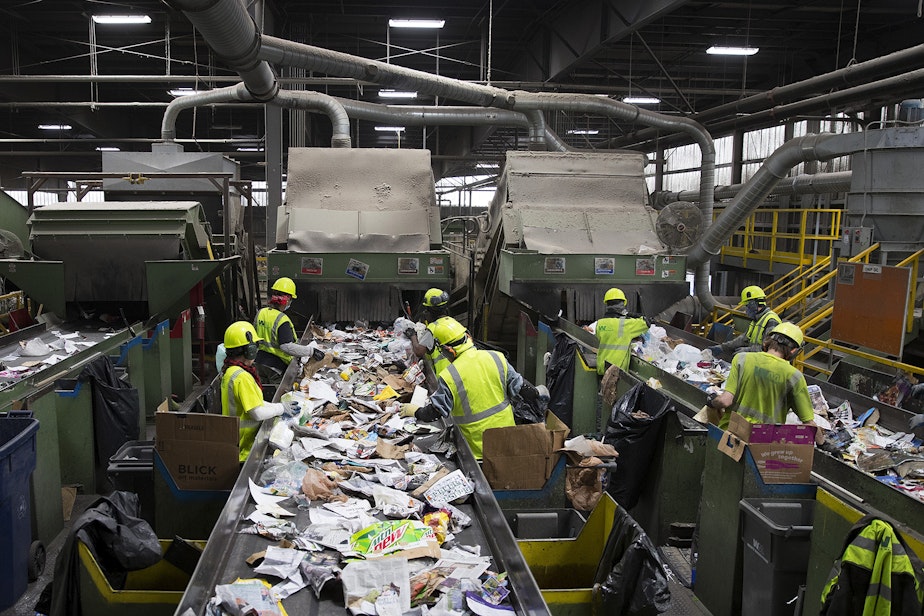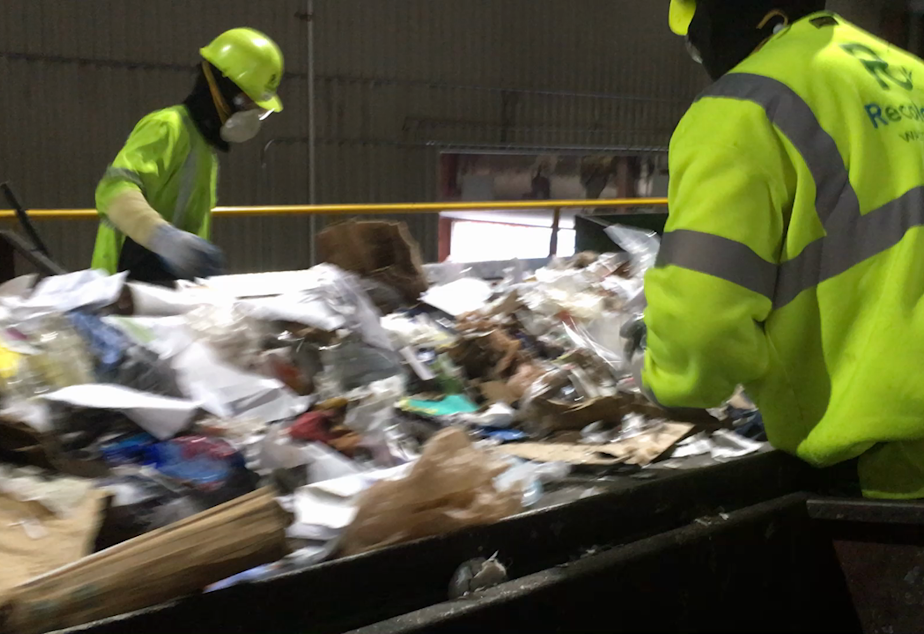Stop recycling plastic bags, Seattle. Also could you do us a favor...

...Um, also don't put them in the garbage. Return them to a store.
Consider this your New Year's resolution.
Starting January 1, plastic bags and wrap will no longer be accepted in curbside recycling in Seattle and the rest of King County.
Nor should they go in the garbage. Take them back to the store, says Seattle Public Utilities.
These thin plastic films have been unwelcome in recycling for a long time. But 2020 is the year Seattle and King County have decided that we will change our habits.
Pat McLaughlin, director of King County's Solid Waste Division, said at a news conference that although it may feel good to put plastic bags and wraps into the recycling bin, the people of the region must stop.
Sponsored
"When you put them in the recycle bin, they're actually very unlikely to be recycled and more likely to become problematic in the rest of our recycling efforts,” he said. “Unfortunately, most of these plastic wraps and single use plastic bags will be wrapped around the equipment."

It's sabotaging our recycling efforts, interfering for example, with paper recycling.
Inside a recycling facility in south Seattle on Thursday morning, pickers tried to grab plastic bags before they get to the equipment. But some of it still made its way to the sorting machine.
The machine’s job is to separate bottles and cans from paper products. But the plastic bags gum up the works.
Sponsored
Crews of workers routinely stop the sorter and cut the plastic off. But through the day the plastic confuses the sorting process, sending plastic bags into the recycling system and contaminating the final product – such as what’s supposed to be a pure bale of paper.
Here are some tips for how to integrate plastic sorting into household routines:
Keep Out
Plastic bags wrappers, and plastic mailers must stay out of the recycling bin. Susan Fife-Ferris, solid waste director at Seattle Public Utilities, said they shouldn't even be going in the garbage. Starting in January, plastic bags must be carried to a store for recycling.
"We recommend that you take your clean wrap, plastic bags, bag em up and take them back to a drop-off the next time you go to your retail store."
Sponsored
Why not the trash? Or why can't they just give us another bin for the plastic bags and wrap?
Plastic films can be recycled. They can be made into plastic decking, for example, but that's if they get to collection bins in stores - and well away from city and county recycling systems. Also, most of what’s going into landfills is already plastic.
But some plastic bags do go in the trash.
Food-contaminated plastics still have to go in the trash – though some plastic food tubs can now go in composting, so pay attention.
One exception is a dry bread bag. Shake it out well to get out the crumbs. Put it in your bag of bags for the next trip to the store.
Sponsored
Garbage bags are plastic film too. Evidently they go in the trash because they are holding the remaining soggy wet stuff together. But they don't ever belong in the recycling bin.
Looking at what we consume with fresh eyes
A movement began with the call years ago to use a tote bag instead of a one-time use plastic bag. Now that movement notches forward, said Fife-Ferris of Seattle Public Utilities, by prodding us to think more about the plastics we buy and receive.
Do we really want to buy 100 Ziplock bags now that we know we’ll be bringing many of them back to the store? What might we use instead?



